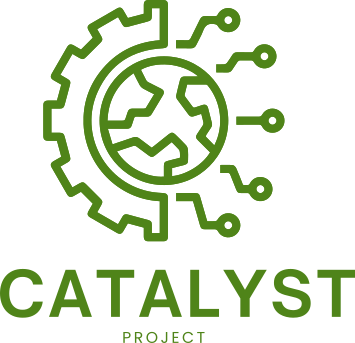Community Partner Highlight - Nelson Mandela African Institution of Science and Technology (NM-AIST)#
This blog post is part of a series highlighting the Catalyst Project’s Community Partners, who are using the Catalyst Project cloud infrastructure to further various projects in the biosciences. Community Partners also play a vital role in shaping our governance model to help us sustain, scale and maximise impact in Latin America, Africa, and under-served communities around the world.
In this blog post, Beatus M. Lyimo shares how partnering with the Catalyst Project is impacting the Nelson Mandela African Institution of Science and Technology (NM-AIST) in Tanzania.
Could you introduce yourself to our readers? Tell us about your organisation/institute/project and the research the members of your community are working on right now.
I am Beatus M. Lyimo, group leader of the Northern Tanzania One Health Research Group, hosted at the Nelson Mandela African Institution of Science and Technology (NM-AIST) in Arusha, Tanzania. Our group, consisting of 5 members—both PhD and masters scholars—focuses on researching the transmission dynamics, genetic diversity, and antimicrobial resistance of the Mycobacterium tuberculosis complex (Mtb) between humans and livestock in Northern Tanzania. By adopting a One Health approach, we aim to better understand cross-species transmission and contribute to improving public health strategies.
Our main objective is to identify and characterise Mtb strains circulating in Northern Tanzania, particularly how they affect both humans and livestock. We investigate the genetic diversity of these strains, their virulence, and their antimicrobial resistance profiles. This work is crucial to addressing tuberculosis in both human and animal populations and developing effective strategies to mitigate its spread.
Through the Catalyst Project cloud infrastructure, we aim to leverage advanced genomic analysis tools to examine whole-genome sequences of Mtb strains. This will enhance our understanding of the genetic diversity and resistance mechanisms of the bacteria. Additionally, this platform provides us with the opportunity to collaborate with other researchers globally, enabling us to broaden the impact of our research.
Our research group has 5 active members, and we collaborate closely with other researchers and students at NM-AIST. All 5 of us are involved in working with the Catalyst Project infrastructure, using it for genomic data analysis, sharing findings, and building expertise in bioinformatics.
“Partnering with the Catalyst Project has been transformative for our research community. The access to training, particularly through the 2i2c Hub Champion Training, has significantly enhanced our ability to manage and optimise cloud-based resources.”
What are you specifically using the cloud infrastructure for? What kinds of data are stored there? What software packages does your community use?
We are using the Catalyst Project’s cloud infrastructure to store and analyse whole-genome sequence data from Mycobacterium tuberculosis (Mtb) strains isolated from humans and livestock in Northern Tanzania. This infrastructure will significantly improve our ability to handle large-scale genomic data, perform detailed analyses, and facilitate collaboration by enabling efficient data storage, genome annotation, and the identification of antimicrobial resistance genes.
Our project operates at the national level, focusing on Northern Tanzania, but also includes regional collaboration with neighbouring East African countries such as Kenya and Uganda. The cloud infrastructure supports both local and regional efforts to understand the genetic diversity and transmission dynamics of Mtb between humans and livestock.
We employ a range of bioinformatics tools, including:
Prokka for genome annotation
Shovill for de novo assembly of genome sequences
FastTree for phylogenetic analysis
DnaSP for genetic diversity analysis
Scikit-learn for machine learning and predictive modeling
Rfinder for identifying antimicrobial resistance genes These tools enable comprehensive genomic analysis, including the detection of resistance mechanisms and the examination of evolutionary relationships between strains.
The Catalyst Project collaboration will significantly improve our research capabilities by providing advanced tools and computational resources. This partnership enables seamless data sharing and access to critical bioinformatics tools, fostering more efficient workflows and accelerating our research progress.
Can you tell us about your experience with the Catalyst Project so far? E.g., have you participated in any training options through Catalyst? What have you enjoyed most so far?
Our involvement with the Catalyst Project has been highly beneficial, particularly through our participation in the 2i2c Hub Champion Training.
